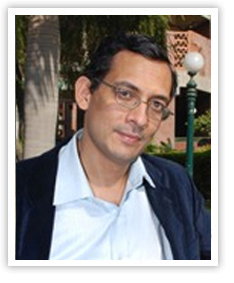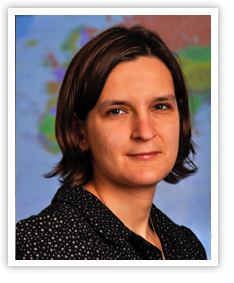Statement of Commendation
Recipients: Abdul Latif Jameel Poverty Action Lab (J-PAL), Abhijit Banerjee, and Esther Duflo
The 2014/15 Albert O. Hirschman Prize recognizes the Abdul Latif Jameel Poverty Action Lab (J-PAL) at MIT and the two scholars who codirect it and have crucially contributed to its founding and functioning: Abhijit Banerjee and Esther Duflo. Like Albert Hirschman, they have been committed to the idea of producing new social scientific knowledge and expanding frontiers of discovery while also confronting deep practical and ethical issues.

Institutions, as well as individuals, deserve recognition for their contributions to scholarship and policy. Few university-based initiatives in the social sciences have accomplished as much as J-PAL in terms of the rigor of research and the potential of the resulting knowledge to affect both social policy and ordinary lives. J-PAL’s efforts to bring to bear exacting study and a team approach to evaluating anti-poverty initiatives, while also providing training in pathbreaking research techniques, policy formulation, and capacity building, are exemplary. Few such organizations have achieved J-PAL’s nearly worldwide reach, now with offices in Africa, Latin America, South Asia, and Southeast Asia as well as North America and Europe.

Professors Banerjee and Duflo are receiving the Hirschman Prize not only for creating and building J-PAL but also for their own significant contributions to both research and practice. They share Albert Hirschman’s passion for promoting economic development and alleviating poverty and its disastrous effects on peoples’ lives. An enlightening instance of that passion is their coauthored 2011 book, Poor Economics: A Radical Rethinking of the Way to Fight Global Poverty, which makes accessible the complex theory, methods, and tests they use. Building upon the numerous randomized controlled trials (RCTs) they have done or have facilitated through the Poverty Lab, the book shows how most poor people respond rationally to the combination of incentives and risks they face, even if that sometimes produces suboptimal choices for the long term. RCTs permit Banerjee and Duflo to experiment with different kinds of interventions in different contexts. Their sometimes counterintuitive results derive from strong empirical evidence and reveal how better choices for the participants and their families might be effectively facilitated. Further, on the websites for the book and for J-PAL, Banerjee and Duflo elaborate on the thinking, tests, and findings that exemplify their approach, thereby making it easier for others to understand what they have done and to apply their perspectives under diverse conditions to achieve worthy ends.